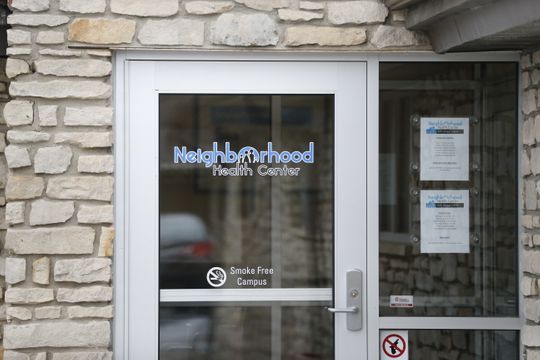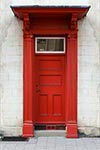RICHMOND, IN | by Jason Truitt| February 18, 2019
Original article can be found at: https://www.pal-item.com

RICHMOND, Ind. — When a health clinic opened in the downtown area in April, Carrie Miles knew there was a need in the community for its services.
The statistics were stark. Wayne County ranks among the bottom in the state when it comes to the health and wellness of its residents. Its citizens also struggle financially, leading the state in the number of children ages 0-5 living in poverty.
“We had looked at the community as a whole in terms of just general health and wellness of Wayne County and realized the predominance of some of the income levels of the residents here,” said Miles, the executive director of the Neighborhood Health Center.
The clinic at 101 S. 10th St. opened its doors on April 30 with the plan of applying to become a Federally Qualified Health Center Look-Alike, a designation aimed at helping impoverished patients.
“When we first started looking at the best way to care for a community of this type, Federally Qualified Health Centers really came to the top of the list because they are designed to provide care regardless of a patient’s ability to pay,” Miles said.
“We’re provided some additional funding to take care of Medicare and Medicaid patients, which offers us the ability to offer additional services to help them reduce some of the barriers in their life.”
The center officially earned its FQHC Look-Alike status earlier this month after an extensive process that included a study by the federal Health Resources and Services Administration of the need within the community. HRSA also sent a group of consultants to the center to look at its practices, policies, quality of care and patient demographics.
“That’s a long process. Just like with everything with the government, there’s a lot of data that they look at,” Miles said. “The great thing about it is the first thing they look at is community need, and they look at what types of patients make up that: demographics, what their income levels are, what their barriers are with different resources.”
Neighborhood Health Center now has about 2,000 patients. The clinic currently has two nurse practitioners on staff to provide primary care, and a third is coming later this year. It also offers behavioral health services, access to dental services and care coordination for those who are managing chronic diseases.
There’s help available to those who have transportation issues as well as prescription drug assistance and financial aid.
The center is the second FQHC program to set up shop in the downtown area. The Wayne County Health Department’s Community Health Center is a full-fledged FQHC, something the Neighborhood Health Center aspires to be one day.
“When you compare us to the Wayne County Community Health Center, they are obviously on a completely different scale in terms of their size and breadth and length of time that they’ve been doing things,” Miles said.
“I think there’s enough business to go around. Certainly, the needs are not being met. We feel like we can meet some of those needs, and we feel like we can be impactful on a certain scale.”
The difference in being a full FQHC and being a look-alike is access to funding, Miles said. As a look-alike, the Neighborhood Health Center isn’t yet receiving federal grants. The current designation allows the clinic to receive more from the government in Medicare and Medicaid reimbursements, money that will go to providing more services to patients.
“Those additional funds and resources will allow us to keep our doors open and continue to be able to offer resources for those folks who really can’t afford to (get) that care,” Miles said.
The Neighborhood Health Center at 101 S. 10th St. in Richmond has earned a designation as a Federally Qualified Health Center Look-Alike, which increases the amount the clinic receives from Medicare and Medicaid.Buy Photo
The Neighborhood Health Center at 101 S. 10th St. in Richmond has earned a designation as a Federally Qualified Health Center Look-Alike, which increases the amount the clinic receives from Medicare and Medicaid. (Photo11: Jason Truitt/Palladium-Item)
Looking to the future, the center would like to grow its behavioral health services, an area where it already has seen a high level of interest.
“One of the top things that we really need to be keyed in to the next few years is more providers for behavioral health because we have done very little — really if any — marketing for those services and it’s really taken off,” Miles said.
In the meantime, the clinic’s leader is proud of the little ways that her staff has found to help patients in need. Miles pointed to one example of employees realizing that some of the patients who are young mothers were stretching formula and diapers.
To help, the center partnered with a local sales rep to provide formula as a bridge until the moms could be set up with other assistance. Staff also started a program where they could wear blue jeans on Thursdays for a dollar donation that funds a diaper bank.
“I’ve been extremely proud of the staff in how they have really embraced taking care of the patients and really thought outside the box in terms of how we can be impactful in their lives,” Miles said.
“We’re just here to do our part — however small that may be as we’re getting started — to help with the health and wellness in Wayne County.”
Jason Truitt is the team leader and senior reporter at the Palladium-Item. Contact him at 765-973-4459 or jtruitt@pal-item.com.
Share this Post












